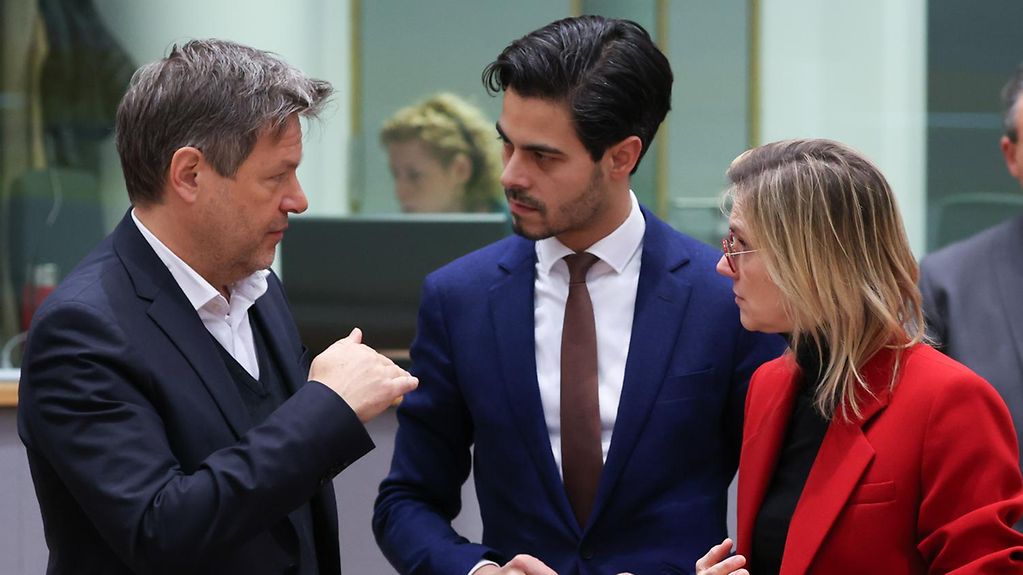Meeting of the EU energy ministers
The EU Energy Council has agreed on a package of measures for ensuring reliable and affordable gas supply and speeding up expansion of renewable energy sources. Planning provides for a gas price cap, pooled gas purchases and acceleration of climate-friendly energy projects.
2 min reading time

This decision ensures “greater security for the winter, both this year and next,” said Federal Minister Habeck after the EU Energy Council meeting.
Photo: European Union
Excessive price hikes in the gas wholesale market are a particular burden for private households and businesses alike. In order to prevent this from happening in future, the EU states have agreed on a so-called market correction mechanism that is to take effect from 2023. This mechanism provides for an upper gas price limit of 180 euros per megawatt hour.
“However, we also need to ensure sufficient supplies of gas. This is why we pursued a cautious approach in our debate concerning the gas price cap, and advocated for numerous precautions to avoid jeopardising supply security and market stability,” Federal Minister for Economic Affairs Robert Habeck explained.
The price cap can be lifted
One of the precautions is that the amount at which the gas price is capped must always be at least 35 euros above the average world market price. The price limit will be lifted in the event of any problems on the gas or financial markets or if supply security is at risk. It will also be lifted if the mechanism turns out to encourage greater energy consumption.
Pooling market power for gas purchasing
“In addition, we are going to coordinate more closely within the EU with regard to gas purchasing and storage. This will allow us to use our joint market power in the interest of all citizens, and will contribute to a reduction of gas prices. We will thus ensure greater security for the winter, both this year and next,” Federal Minister Habeck continued. The EU states are going to take joint action concerning gas purchases. Planning provides for a more efficient use of cross-border transmission lines.
Accelerating renewable energy approval
The Federal Government seeks to generally contribute to maintaining the stability and reliability of energy supplies and to enabling a sustainable reduction of energy prices. This is why it is urgently necessary to accelerate the expansion of renewable energy sources and energy grids.
“We have initiated a booster for renewables, which will considerably speed up the expansion of solar and wind power across the EU over the next few years. This will help us to become independent of Russian gas sooner, as well as to meet our climate protection targets,” said Robert Habeck.
In concrete terms this means that from 2023 onwards, renewable energy projects and electricity grids can be planned and approved more quickly in priority areas. The EU established that renewable energies and the required network infrastructure are of overriding public interest and must therefore be treated preferentially with regard to planning and approvals.